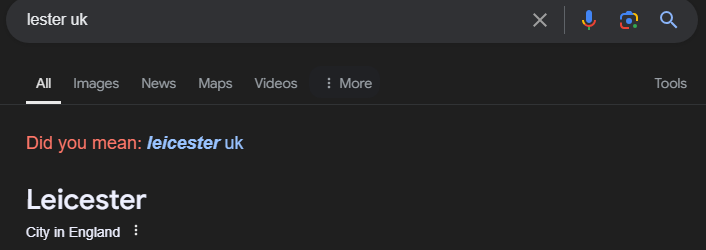xkcd #2942: Fluid Speech
Alt text:
Thank you to linguist Gretchen McCulloch for teaching me about phonetic assimilation, and for teaching me that if you stand around in public reading texts from a linguist and murmuring example phrases to yourself, people will eventually ask if you’re okay.
Hop-pa-taydo
Also, the phrase “I’m going to” is often shortened to “I’mma” or “I’m ‘onna”. When referring to oneself, we tend to drop the G entirely
like this example for Imma be there.
Up and at them!
I didn’t get it until I started trying to say “hot potato” in the middle of a sentence, like “Look out! Hot potato incoming!”
The ‘t’ in “hot” became more and more like a glottal stop as my tongue started to touch the gums of my top front teeth less and less.
Still, I don’t think I could uncover that alien impersonator.
“I’m goa have some hot potato.”
Too me the “t” (at most) emphasises the hotness. Am I wrong?
Are you the alien? Nobody calls a potato for eating hot potato… If you’re eating a potato it’s going to be hot. Hot potato is referring to the game where you pass something along very quickly. It’s saying you’re all passing something along that no one wants to get caught with or stuck with, and it’s almost never literally, it’s usually taking about a responsibility being passed or something like that.
If you’re eating a potato it’s going to be hot.
Potato salad has entered the chat.
The alien impersonator was me all along! HAHAHA!!!
I mean, seriously, I am not a native English speaker, but even with my weird English accent, it only became weirder if I try to speak fast while keeping the emphasis on that ‘t’ at the end of “hot”. My native accent also probably lends to that glottal stop taking over the ‘t’ and merging it with the upcoming ‘p’ sound. It also helps that the two sounds (glottal stop and the bilabial ‘p’) are on opposite sides of my mouth, so I can quickly sound them in succession. The end result sounded to me like an exaggerated “posh British” rendition, as if the alien watched way too much BBC before invading Earth.
It just sounded way weirder than I otherwise would be. I can’t really describe it.
See, my middle name ends with an S and my last name begins with an S… and my middle name is a pluralized name, so nobody hears the S when I say it in conjunction with my last name. So I’ve gotten really good at pronouncing the S, stopping for a beat, then saying my last name, without it sounding super weird or robotic.
So properly pronouncing “hot potato” while enunciating the first T doesn’t seem too challenging to me.
This is some riddle shit I can’t figure out
Something like “Adams Smith” probably fits the bill. People would hear “Adam Smith”
Thanks so much! I always sucked at riddles I couldn’t come up with anything lol
Sounds like I’m exclaiming that something is hot, then clarifying that it was a potato.
Nice. There’s lots of areas I’ve lived where the locals drop specific consonants from the names of places. So anyone who actually pronounces the place name “correctly” is immediately recognized as new to town.
Louisville becomes Luhvul
I can only think if Toron(t)o. Never really thought about other towns doing the same thing.
Like the other reply said, it’s all over the place in Australia. You can easily tell a tourist—especially an American tourist—because they’ll say “can-bair-a” instead of “can-bruh”.
It’s not unusual in the UK, too. Worcester is Wost-er, Magdalen(e) is mawd-lin, and Leicester is lester.
OMG, that makes it so much worse. If someone tells you about a specific place, and you want to look it up later, you have absolutely zero chance of ever spelling it correctly. Good luck typing lester or woster in Wikipedia or Maps.
As it happens, that worked just fine:

Worcester is famous even outside the UK because of Worcestershire sauce (pronounced “woster-shuh” sauce), the condiment named after the region. And because the name is on the bottle, it’s easy for people to remember.
Vangcouver. =] Also every city in Australia.
Melb’n
We have a Bradenton nearby which gets shortened to branton (pronounced like brain-nton). Gotta have the long A or else you’ll accidently send someone half an hour away to Brandon.
Surely you mean “Trahnah”?
When I hear someone from that city say their city’s name, it sounds like it should be spelled “Trono.”
Shibboleths are amazing! Calgary is almost universally pronounced “Cal-Gary” by non-locals, locals say “Calgree”
I’m gonna have to disagree with you. Have you ever seen a Shoggoth? They’re horrific and just because they’re protoplasmic beings doesn’t mean their mispronunciation of English should be celebrated.
Oregonian checking in here.
I’m sorry, but this one fails hard. My country ass drawls like I get paid by the vowel length, and I’ve never once shortened going to, to a single syllable. Never heard anyone do it either.
And hot potato isn’t difficult to say at all.
Is this one a joke rather than something that’s supposed to be real?
Now, I’m not saying we don’t have some mush mouthed mofos up in these here hills, we do. Just not to that degree at all.
Yes. You a special snowflake who is the only human being on planet Earth who doesn’t do sandhi. You should go to the nearest university’s linguistics department and show off your linguistically unique trait. You could probably make a decent living as a guest speaker at linguistics conventions too.
🙄
Hey, suck a dick buddy
If you can’t say “tellyahwat” in one syllable you’re not country enough
Y’all need to gitonupouttahyuh
It’s a broad generalization, but it’s not really a matter of opinion. We can scan people’s mouths and faces when they talk (and have in order to demonstrate this stuff). I think the last example probably only applies that way in particular circumstances though, since English speakers automatically group, contract, and arrange certain phonemes in certain orders (e.g., I’m not, I ain’t, but never I amn’t–and in real speech “I ain’t” is almost always one syllable). In this example, more frequently my country ass contracts the first syllable of “gonna” away instead of the second, so “I’m 'na head to the store; y’all need anything?”
The hot potato example just stands for the premise that in real speech the t at the end of hot and the p at the beginning of potato slur together, and if you deliberately enunciate both consonants, you sound like you’re reading to a transcriber. Compare the way a normal person says “let’s go” to the way you sound if you force separate the words: you sound like you’re doing a Mario impression.
I’m sitting here sounding like an idiot repeating the phrase, and doing a full sentence. There’s a distinct, split second pause in between the t and p, no matter how fast I try to go.I can’t seem to say the hot without that t being crisp, with the tongue against the upper part of the mouth, then the shift for the p causing a tiny pause in between.
If anything, there’s a brief inhalation, which is kind of a sound that links them. Is that what it’s supposed to be? We can’t be that far off around here. My dad says it the same way I do, I bugged him about it earlier.
When I force it into one mouth movement, it turns into a “tup” sound, but that feels alien to me.
You slow down for the t in hot? If you say hot potato aloud, in a sentence, you’ll likely drop the T. This also really depends on your accent.
Atleast when I slowed down to say it aloud, it sounded quite unnatural to purposely slow down for that T sound in Hot
I keep fucking saying that I’ve been doing that, and it doesn’t fucking happen.
Y’all motherfuckers apparently never come into the mountains where speech is slooooow by default.
Even speeding up on purpose, it doesn’t happen. Which is why I made the original comment in the first place. Wouldn’t waste my fucking time otherwise. Jfc people can be assholes over nothing at all
Nah, no need to slow down. Molasses flows faster in winter unless I’m pissed off and swearing. The t and p are distinct. The o vowels in potato get drawn out, and essentially turn into puhtaytuh, unless I’m paying attention and speaking formally but the t and p are separate. I’ve been annoying my wife trying to make a sentence where it happens, even asked my dad to do it so I could hear him.
I plan to annoy other family and friends tomorrow because it seems weird for something universal enough to end up in an xkcd to not happen at least enough to have encountered it, but because “hot potato” is a game, and a slang term, I’ve heard it a lot. I can’t think of any time there wasn’t at least a partial stop between the t and p, with the t being distinct. Plenty of mangling potato until it sounds like a foreign word, but that’s a different thing
Maybe it’s regional? Gods know the Appalachian dialect is full of some weird quirks.
Turning ‘potato’ into ‘puhtaytuh’ is an example of what they’re talking about. Saying ‘puhtaytuh’ involves less mouth movement than saying ‘potato’.
Try using ‘hot potato’ in a sentence and you’ll probably notice that the glottal stop at the end of ‘hot’ gets toned down or dropped. The ‘t’ sound will still be there, but your tounge wont move as much as if you say ‘hot’ on it’s own.
You’re not supposed to just say hot potato. Use it the middle of a sentence then say it fast.
I had to think of a ghetto accent “I’m ga’a fuck you up, mate”.
So, it’s not like there’s no movement in that single syllable. A mild attempt is made at pronouncing two syllables, by having the back of the tongue shortly touch the roof of the mouth. But for properly pronouncing an “n”, the front of your tongue needs to touch the roof of your mouth, and that’s certainly not happening.
Haw’potado
Phonetically, it’s exactly right, but It visually reads like the name of a Vulcan side character from an episode of star trek
This example doesn’t work for me. I barely pronounce the “t” even when i just say the word “hot” by itself, so when i say “hot potato” i don’t pronounce the t any differently.
Now I’m just sitting here picturing you saying stuff like “Careful don’t touch that! That pan is ho!”
After repeating it out loud for a bit, it comes out more like “hah” than “ho”
Yup exactly. It’s something like “hahd” but the end is extremely quiet, and the sound is like halfway between a t and d. Kind of like how French people say a final t at the end of a word like beret
I get as far as the third panel. Anything beyond that is drunk speak
I thought the same at first, but then I tried actually saying it out loud. “Yeah, I’m just gonna go to the shops”. And I actually think Munroe has it right here, at least for my accent. If I had been asked to say it and carefully analyse it myself, I probably wouldn’t have noticed at all that I was eliding more than “going to” to “gonna”. And if I had noticed, I still probably would have analysed it as (and I’m using Hangul here because frankly I don’t know how to spell out the vowel in the Latin alphabet in a way that actually makes sense) 근 (basically “gun”, but with a lazier vowel). But it’s definitely been elided down to a single syllable.
The key thing is that this only happens when putting it into the middle of a full sentence. If it’s the only word I say, it stays “gonna”.
I can only get to /gә̃/ if I make an effort to say it faster than I ever actually talk. Otherwise, it definitely always has that “n” sound in there.
Yeah, “gon’” seems about the most efficient form of “going to” that would be recognizable.
Going to > gonna > gon’
I guess if you’ve lived anywhere where speech has drifted a little hillbilly this version is just daily speech rather than any need for speed.
Amusingly, just a couple of days ago we had a post about this same phenomenon in !ausmemes@aussie.zone.
We English wouldn’t only drop the first t, we’d drop the h and the final t as well, 'o pota’o… innit
And in my experience (or at least how I as a foreigner was taught the English RP pronounciation), often also the spaces between words.
RP drives me crazy with its bizarre pronunciation rules. Like never pronouncing ‘R’ unless it’s not there.
“Law and order” under RP approximates “lo ran doh duh” where literally every ‘R’ in the phrase is not spoken, but they jam one in place of the ‘W’.
ARGH! THE SPIDERS ARE EATING MY EYEBALLS FROM THE INSIDE!
I’m not a native english speaker, so I pronounce the T.
hɒʔpteɪdəʊ
Hop-tay’doh
Subscribe, I love these














